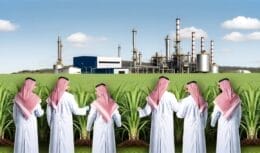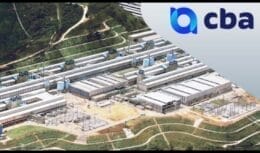
New diesel fuel with lower CO2 emissions could be key to a greener transport industry
The Cost and Environmental Impact of Traditional Diesel
According to the National Transport Confederation (CNT), diesel oil constitutes a significant 35% of the operational costs of road freight transport. This not only puts pressure on freight rates, but also has repercussions on controlling inflation and on the pockets of all Brazilians. Even more worrying, the high diesel consumption, a fossil fuel, makes road transport one of the biggest emitters of pollutants. In response to these challenges, the industry has been looking for alternatives to transform this situation.
The Advent of the R5 Diesel: A Green Light at the End of the Tunnel?
The scenario may be about to change with the launch of Diesel R5, a fuel that combines 95% mineral diesel derived from petroleum with 5% green diesel, obtained from soybean oil. Furthermore, the final product has an addition of 12% biodiesel ester, as dictated by current laws. Marcel Zorzin, operational director of Zorzin Logística, which manages a vast fleet of trucks, sees this development as a potential way to reduce polluting gas emissions. “This can help us challenge the stigma that trucks are always the bad guys when it comes to environmental pollution,” said Zorzin.
The ESG Approach and Implementation Challenges
The impetus to adopt environmental, social and corporate governance (ESG) practices It is also leading companies to seek strategies that optimize their operations and reduce their carbon footprint. However, Zorzin cautions that the use of these fuels must be approached carefully. “The real challenge is finding the balance between a vehicle that burns fuel efficiently and a fuel that is cleaner,” he explains.
Fleet Aging and Future Perspectives
One of the barriers to CO2 reduction is the average age of the trucks. According to a 2019 survey by CNT, the average age is 15,2 years, which means that older vehicles tend to pollute more. However, companies like Zorzin Logística have invested in technological updates for their older trucks. “When the S10 diesel was launched, we made significant upgrades to our fleet,” said Marcel Zorzin.
However, cost remains a critical factor. Price fluctuations due to government policies and market swings make the transition to cleaner fuels a challenge. “I hope the Diesel R5 be cost competitive so we can really invest in it,” concludes Zorzin.
The entry of Diesel R5 into the market presents a promising alternative for a more sustainable transport sector, although there are still several obstacles to be overcome. If successful, this new fuel could represent a milestone in the transition to a greener and more responsible transport industry.
Source: Mostra de Ideias Group.














Odebrecht back in the game:…
Comperj Public Hearing Out! All…
Brazilian engineering company opened…
Porto do Açú back…
Comperj and the verdict: Leaders…
There are job opportunities, but the return…
Ugly style, old engine, weak etios
Old weak engine
Canada produces 2% of the world’s niobium…
With this communist government and the…
The intention is good, unfortunately with this…
Congratulations Roberta for the excellent article. Demonstrated knowledge…
Do you really think the profits went to…